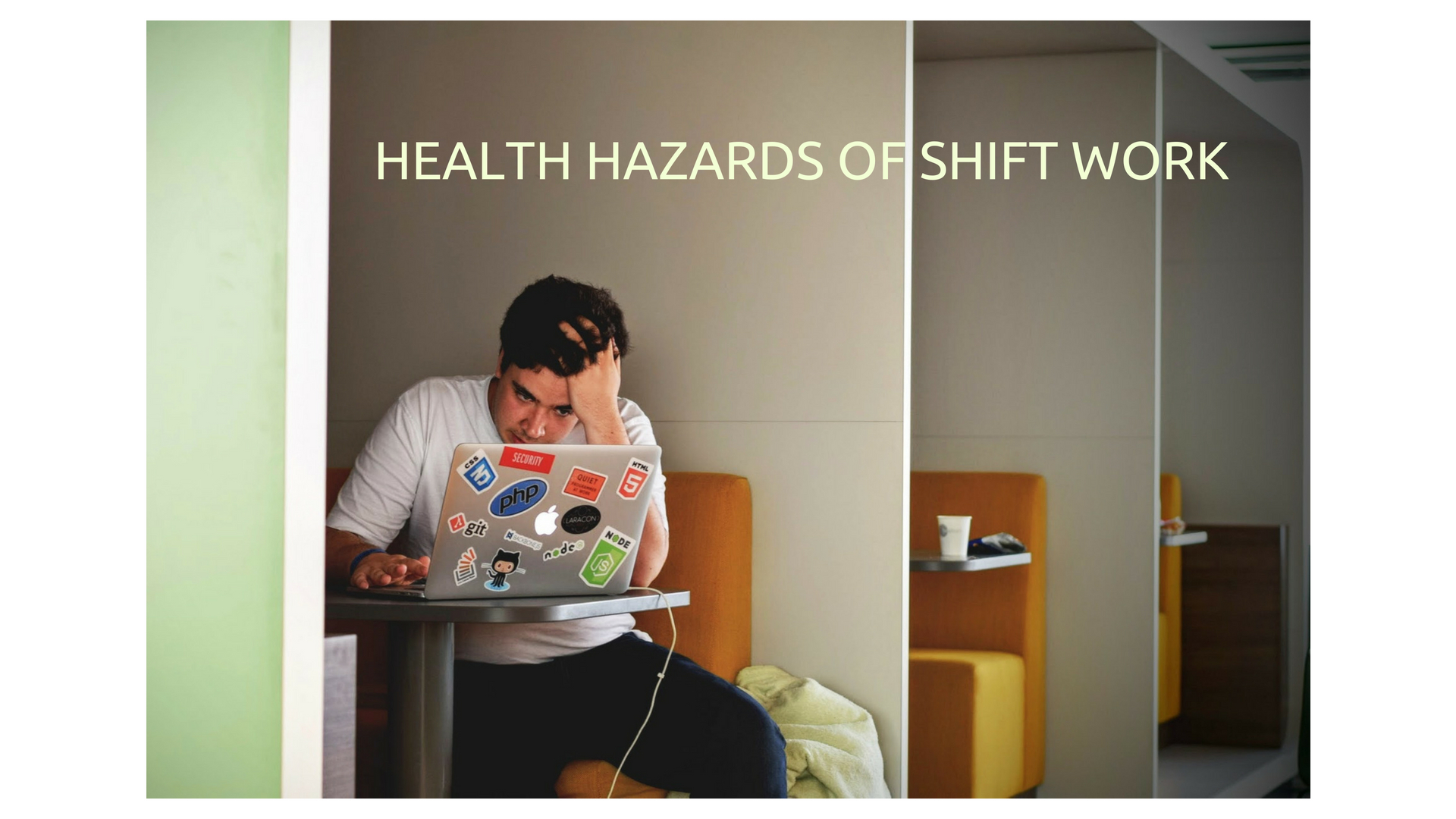1: Sleep Deprivation
2nd shift work often leads to sleep deprivation which can wreak havoc on your health. One key to help combat the negative consequences is to maintain a consistent exercise program. Stanford University researchers found that the fatigue from exercise involving vigorous use of your legs acted as a tranquilizer. Regular exercisers tend to fall asleep faster and stay asleep. It will also help you reach the deeper level of sleep known as stage 4. More time spent here and you will wake up feeling refreshed and rested.
2: Poor Nutrition
The human body has a specific 24 hour circadian rhythm that governs the major biological functions. Appetite, digestion and elimination are just a few of those functions. When you work 2nd shift, there is a disturbance or interruption in these processes which can lead to poor digestion and abnormal glucose metabolism. It’s important to strategically choose foods that will maximize energy levels and satiety at the same time. Unfortunately the traditional vending machine offerings will not satisfy this requirement so it’s essential that you take the time to prepare your own personal lunch box with a variety of healthy meals, snacks and beverages. Avoid high fat – high sugar foods and minimize caffeine intake as this will only temporarily boost your energy with an inevitable crash sure to follow.
3: Increased Risk for Disease
A new large scale study published in the British Medical Journal shows that any shift other than the traditional 9 to 5 puts workers at an increased risk for high blood pressure, vascular disease, obesity and diabetes. Some of this increased risk can be attributed to the poor eating and sleeping habits but even when those factors were eliminated, the risk was still present. It’s important as a shift worker that these risk factors be identified and managed through both lifestyle changes and medical intervention. The number one lifestyle change that can positively impact these risks is exercise. The goal would be to obtain the highest level of fitness possible. The best time to exercise if you’re on 2nd shift is upon waking up. Studies show that people who exercise at the beginning of their day are more consistent and have a lower dropout rate. Not only that, the energy boost from exercising can bleed over into your performance on the job allowing for more productivity, energy and alertness.




